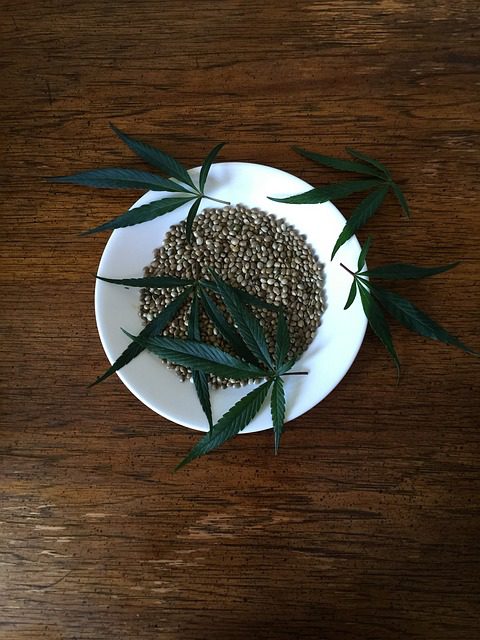The hemp plant is developed in the northern hemisphere and takes around 3 to 4 months to get fully mature. Hemp seed can be used to produce various food products, including hemp milk, oil, cheese substitute, and hemp-based protein powder. Hemp seeds are a great source of nutrients and part of the hemp plant; these seeds are a nut that can be eaten raw.
Hemp is often confused with marijuana because both belong to the same family, but both are different. While marijuana is grown to contain high amounts of tetrahydrocannabinol (THC), the chemical is responsible for its psychoactive properties. Hemp describes the edible plant seeds and only contains a piece of THC. For many years the seeds have been used for topical applications to treat and prevent particular health issues.
The seed has a nutty flavor, and versatility also makes them an excellent substitute for the level of protein, fatty acids, and other nutritional benefits found in meat and dairy products.
The nutritional value found in hemp seed:
A 30-gram serving of raw hemp seed contains-
- Calories- 166
- Protein- 9.47 grams
- Fat- 14.6 grams
- Carbohydrates- 2.6 grams
- Fiber- 1.2 grams
- Sugar- 0.45 grams
The seed is also a good source of-
- Iron
- Vitamin E
- Magnesium
- Manganese
- Vitamin B
- Zinc
Hemp seeds nutrition Data:
Hemp seed contains a high level of omega-three and omega-six fatty acids. Studies have concluded that the optimal proportion for the fatty acids in hemp seeds is 3:1. Moreover, on this ratio, these fatty acids help support healthy cholesterol levels and immune system function and regulate your metabolism.

Health benefits from hemp seeds:
Hemp seeds are a rich source of plant-occupied protein. They contain amino acids, and it has been concluded that hemp’s protein content is well-consumed by our bodies.
In addition to this, hemp seeds’ history is tied to the health benefits. However, many people do not experience the benefits of hemp seeds, but those who have tried it can better explain how eating hemp seeds changed my life.
Health benefits of hemp seeds include the following-
- Heart health-
As hemp seeds are an excellent magnesium source, which helps balance heartbeat and is linked to preventing coronary heart disease. These seeds also contain linoleic acid, which decreases cholesterol levels by 15 percent and also reduces blood pressure.
- Anti-inflammatory features-
One of the omega-six fatty acids in hemp seeds has an anti-inflammatory effect.
- Skin issues-
Hemp oil can be used as cooking oil to add nutritional benefits to the food, and it can be used on the skin. Studies have shown that hemp seed oil can alleviate eczema symptoms and improve itchy skin. Moreover, hemp seed oil can also help to treat acne.
- Brain fitness-
The proportion of omega six and omega-three fatty acids in hemp seeds is optimum for nutritional benefits. This balance supports heart and cognitive health. Hemp seed also contains a plant compound called terpenes. While research suggests that terpenes can help protect the brain and prevent cancer development.
What does hemp seed do to your body? (potential side-effects of hemp seeds)
While the fat content in the hemp seed comes primarily from its healthy fatty acids when you consume them in moderation. But high consumption of these seeds can also cause diarrhea or nausea.
Other things to remember before adding hemp seeds to your diet include-
- Medication interference-
Hemp seeds may be linked with certain medications, including anticoagulants. Studies concluded hemp seeds diminish blood clotting, which can combine with blood-thinner prescriptions.
- Cannabis reliance-
The hemp seed shell contains a certain amount of THC, the active psychoactive compound found in marijuana. People with an earlier dependence on cannabis may see it as an alternative.
- Digestive problems-
The fiber in hemp seeds can cause digestive issues like bloating, nausea, constipation in a big amount. Make sure to drink an abundance of water when eating hemp seeds to help avoid gut problems.
Do hemp seeds contain CBD? (Difference between hemp seed and marijuana?)
Many people think hemp and marijuana are similar things, but it is not valid. Hemp and marijuana belong to the same Cannabis family but are very different. Simultaneously, hemp has been known to have more than 25,000 applications where marijuana cannot provide results.
Marijuana is known for medicinal and recreational purposes, but that is not the case with hemp. While marijuana is often used for the ‘high,’ it can give its users, that is not the hemp.
Marijuana has high THC, which ranges from 3 to 5 percent, which has psychoactive components. Marijuana is for recreational and medicinal use and should be grown in a controlled environment. At the same time, hemp requires minimum care to grow and thrive and is adaptable to any climate. Hemp’s applications include plastic, food, construction, baby care, and clothing.
Though, many people are confused about whether CBD oil or hemp seeds are addictive or not. The simple answer is no; both of them are not addictive. CBD can help to treat drug addiction along with other holistic addiction treatments.


